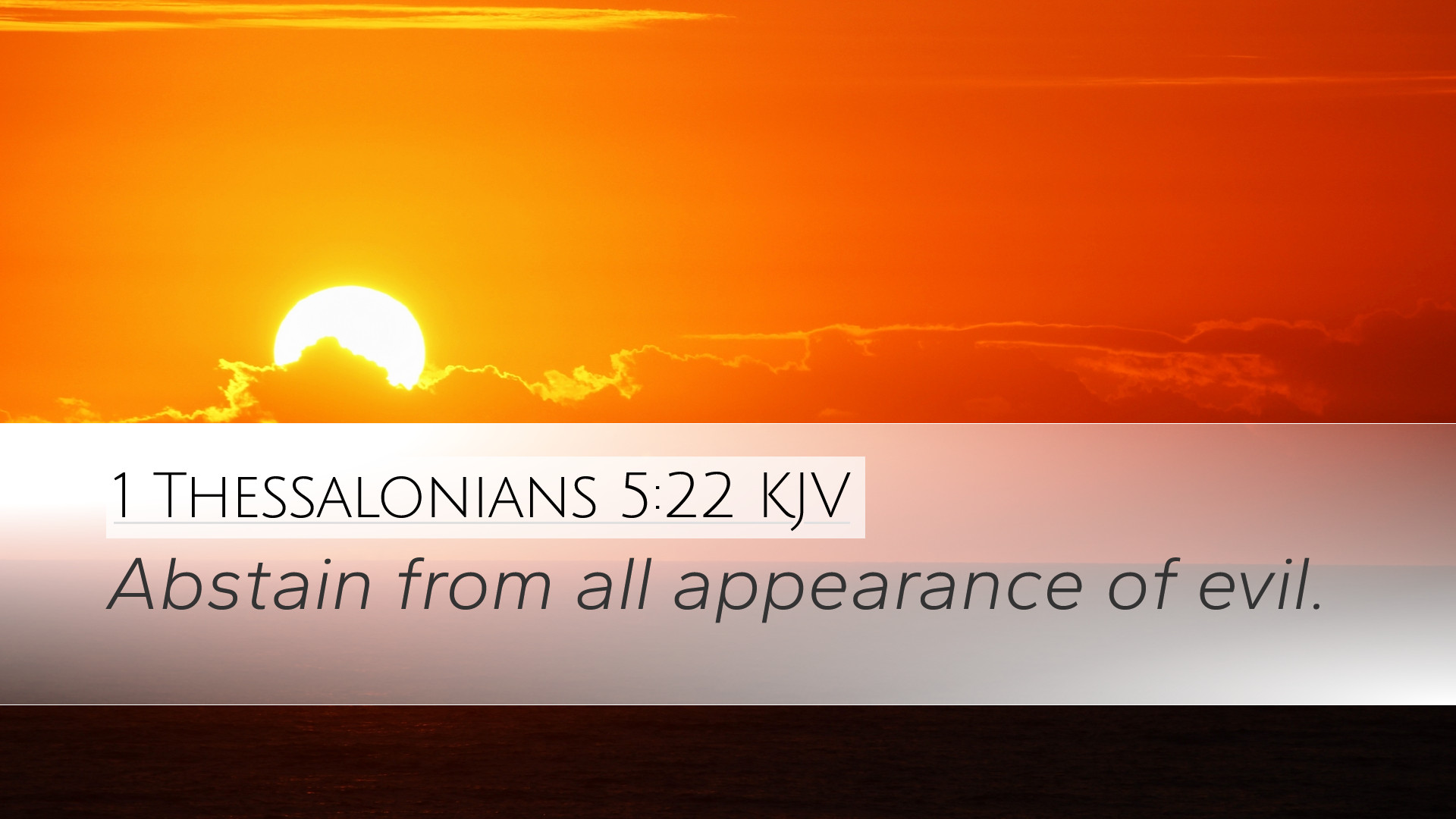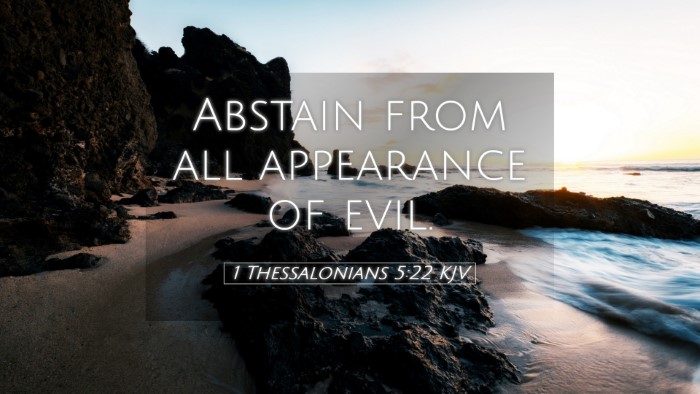Commentary on 1 Thessalonians 5:22
1 Thessalonians 5:22 states: "Abstain from all appearance of evil." This verse serves as a concise yet profound directive regarding the Christian moral life. Its implications and applications have been discussed extensively in various public domain commentaries.
Context and Overview
To fully grasp the importance of this verse, it is essential to consider its context within the Apostle Paul's letter to the Thessalonian church. The passage is part of a series of exhortations that aim to instruct believers on how to live in a manner pleasing to God, amidst a world fraught with moral ambiguity.
Exegesis and Theological Insights
Interpretation of "Abstain": The term "abstain" implies a deliberate choice to refrain from something. In this case, it invites believers to actively choose to avoid even the semblance of evil, which aligns with the exhortation found in Romans 12:9—"Abhor what is evil; cling to what is good."
- Matthew Henry emphasizes that this command is not limited to actual evil but extends to any outward appearances or associations that might suggest wrongdoing. He notes that the Christian life is marked by a commitment to holiness and purity.
- Albert Barnes expands upon this by suggesting that the "appearance of evil" may refer to anything that carries the potential to mislead others regarding a believer's character or testimony. Barnes argues that Christians must be vigilant about their behavior and the perceptions it creates.
- Adam Clarke offers a nuanced understanding of "appearance." He describes it as anything that could be interpreted as evil, whether by others or the individual themselves. Clarke believes that this highlights the necessity for self-examination and caution in all actions.
The Implications for Believers
This verse has significant implications for the ethical and moral conduct of Christians. It calls for a conscientious approach to daily life, demanding not only inner purity but also a discernment regarding the external ramifications of actions.
- Personal Holiness: Engaging in practices that are beyond reproach is central to this verse. Believers are encouraged to cultivate a strong personal holiness that reflects their faith. This involves a continual process of sanctification where one actively seeks to avoid sin.
- Social Responsibility: The call to abstain from evil appearances extends to interactions within society. Christians are urged to be mindful of how their actions may affect their testimony, especially to those outside the faith.
Practical Applications
Applying the principles found in 1 Thessalonians 5:22 requires practical steps:
- Mindful Living: Believers should consider the perceptions of others regarding their actions and choices. Questions to ponder include: "Will this action create doubt about my faith?" or "Does this association imply an endorsement of evil?"
- Guarding Influence: Engaging with media, entertainment, and literature that aligns with virtuous principles is crucial. Christians are encouraged to assess their influences regularly to ensure they are consistent with their beliefs.
- Accountability: Partnering with fellow believers for accountability can aid in avoiding the appearance of evil. Sharing struggles and seeking community support can foster a lifestyle of integrity.
Conclusion
In conclusion, 1 Thessalonians 5:22 serves as a vital reminder for Christians to abstain from all appearance of evil. The profound insights from public domain commentaries, including those of Matthew Henry, Albert Barnes, and Adam Clarke, offer depth to its understanding. The call to uphold personal holiness while being cognizant of societal perceptions underscores the importance of living a life reflective of Christ's teachings.
Ultimately, this verse invites an examination of conduct, urging believers to embody their faith in every facet of life. Such actions not only contribute to one's testimony but also promote a broader sense of community resonating with the holiness of God.


